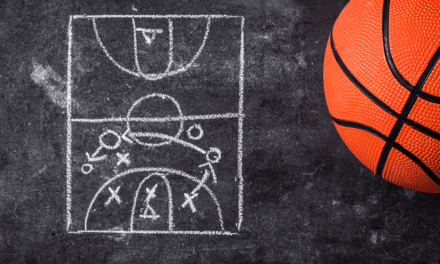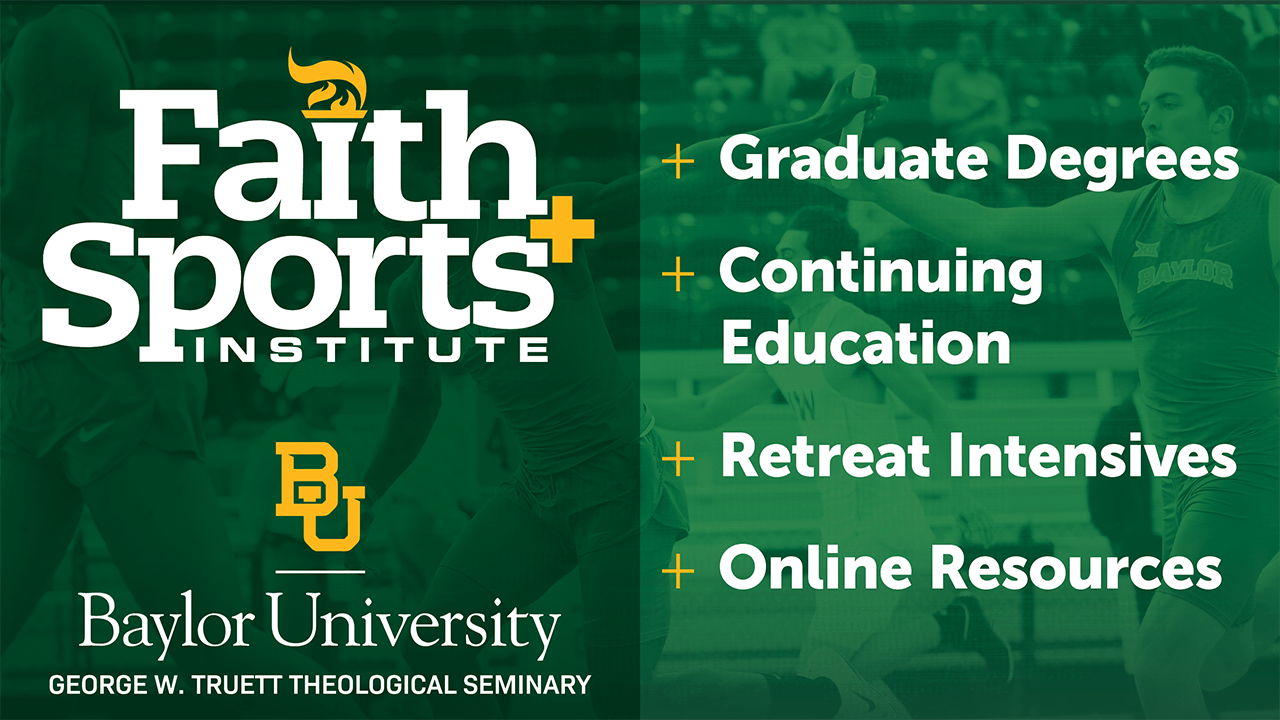Editor’s note: To help Christian sportspeople navigate these uncertain times, we will be publishing a series of posts focused on what it looks like to “Run The Race Well” in a time of coronavirus and quarantine. We will be getting contributions from a variety of perspectives: theologians, philosophers, athletes, coaches, mental health professionals, seminary students, and more. This post comes from Nathan Keil, a Truett Seminary grad who is now a teacher and coach in California.
Nathan Keil
The spread of COVID-19 has uprooted us from the luxuries and pleasures our sports world has to offer. As athletes, coaches, teachers, administrators, or just fanatics, we’ve all been forced to press pause on the routines and structure that athletics provides.
But as we cease to play and flourish in the arenas, gymnasiums, and fields that birthed our competitive spirits, we can still press play on Netflix, Hulu, and other streaming services. We can still reconnect with the sports stories and teams that challenge us, frustrate us, and inspire us to compete in a God-honoring way. What can these stories reveal or teach us during this time of quarantine?
- Sport reveals perspective and sometimes a need to change ours.
In sports and in life, things never remain as they are. No matter how talented we are or how destined we are for greatness, careers eventually end. NBA fans recently witnessed three of the greatest players of this generation—Kobe Bryant, Tim Duncan, and Kevin Garnett—enter the Basketball Hall of Fame. Sports movies and television shows reflect this truth as well.
In the NBC drama “Friday Night Lights,” Eric Taylor takes a coveted head football coach position at a high school in Dillon, Texas, where football is the preferred religion. Taylor wins two championships, but the scrutiny and pressure to win from the town’s major political powers are intense. The show ends with Taylor deciding to move on from Texas, following his wife Tami to Philadelphia.
In Bennett Miller’s 2011 film Moneyball, we see another form of change. Brad Pitt portrays Oakland Athletics General Manager Billy Beane. A former top prospect whose playing career never panned out, Beane has to figure out what’s next. He settles on the front office. Recognizing that the Athletics have a limited budget, Beane upends baseball’s blueprint for winning by bringing in cheaper players with potential for success over proven, expensive free agents.
It takes immeasurable talent, commitment, and effort to be great at the highest level, but it takes equally as much commitment and effort to know when to walk away and to find what’s next. Beane and Taylor saw the writing on the wall and embraced new opportunities. This pandemic might lead others to recognize the same—and that doesn’t have to be a bad thing. Transitions are uncomfortable, but they can lead to finding purpose in other areas of our lives.
- We love an underdog story.
The 2004 film Miracle rehashes the United States’ stunning victory over the Soviet Union in the 1980 Olympic games—a victory so improbable, Americans refer to it as the “Miracle on Ice.” If you’re a casual hockey fan you might wonder what made the United States’ victory so shocking?
The Soviet Union had won four straight Olympic gold medals and the U.S. squad consisted primarily of college hockey players. The mismatch was real. And yet, contrary to popular belief, miracles still happen.
Miracle depicts a real-life underdog, but there are plenty of fictional versions, too. In Disney’s D2: The Mighty Ducks, the U.S. team defeats a daunting Iceland team in the greatest shootout in movie history. In Rocky IV, Rocky Balboa avenges Apollo Creed’s death by knocking out Ivan Drago. Countless other movies tell similar David-and-Goliath tales. They remind us that there are always going to be giants standing in the way of greatness, but we cannot be afraid to confront them.
Of course, there are limits to how this idea might translate from sports dramas to life. To describe COVID-19 as another “giant” in our path to greatness diminishes the scale of the pain and loss it has caused. But while COVID-19 itself should not be seen as an Ivan Drago to knock out, the smaller challenges it has created are things we can face and confront. We can combat complacency with purpose; we can fight despair with hope; we can cultivate patience over restlessness.
The Apostle Paul provides a challenging yet helpful illustration for us.
“Not only so, but we also glory in our sufferings, because we know that suffering produces perseverance; perseverance, character; and character, hope. And hope does not put us to shame, because God’s love has been poured out into our hearts through the Holy Spirit, who has been given to us.” Romans 5.3-5 (NIV)
In our restlessness, let us find comfort in Paul’s words of hope and assurance to the Romans amidst their suffering.
- Sport reminds us that we are created for community.
Community is part of the human infrastructure and sport provides that to us in exciting and challenging ways.
In Remember the Titans, set in Virginia after segregation’s end, coach Herman Boone crosses racial barriers to unify his football team. Players and coaches put aside prejudices and personal beef to form a cohesive unit built for success on the gridiron. Another historical film, A League Of Their Own, shows how baseball provided women with companionship, a source of pride, and a much-needed distraction from the realities of World War II.
By pausing to revisit teams that have challenged or empowered us, we are reminded of the incredible [spiritual] wealth that we can have through sport, including acceptance and connection. We are reminded, too, of the Christian imperative of community.
In Life Together, Dietrich Bonhoeffer explains it this way: “The more genuine and the deeper our community becomes, the more will everything else between us recede, the more clearly and purely will Jesus Christ and his work become the one and only thing that is vital between us.”
Community is the fiber that holds us all together and one of our greatest outlets for that is sport. Although COVID-19 has forced us to rethink how we connect to each other, by strengthening our intentionality, we can strengthen our intimacy.
As we continue to grapple with our new sports-less reality, let’s revisit the films that remind us what we love and learn from sports, like the inspiration of the underdog, and the need for acceptance and community. Perhaps these principles can uplift our spirits and maintain our hope until competition returns.
 About the author: Nathan Keil received his Master of Divinity from Truett Seminary in December 2018 where he was involved in both the Sports Ministry and Christian Witness programs. While at Truett, he served on staff with the Baylor Lariat for two years, as a sports writer and editor, covering all things Baylor Athletics. He is currently a high school English and Bible teacher and a high school and middle school volleyball coach at California Crosspoint Academy. He lives in the San Francisco Bay Area with his wife Amber and dog Stuart.
About the author: Nathan Keil received his Master of Divinity from Truett Seminary in December 2018 where he was involved in both the Sports Ministry and Christian Witness programs. While at Truett, he served on staff with the Baylor Lariat for two years, as a sports writer and editor, covering all things Baylor Athletics. He is currently a high school English and Bible teacher and a high school and middle school volleyball coach at California Crosspoint Academy. He lives in the San Francisco Bay Area with his wife Amber and dog Stuart.






